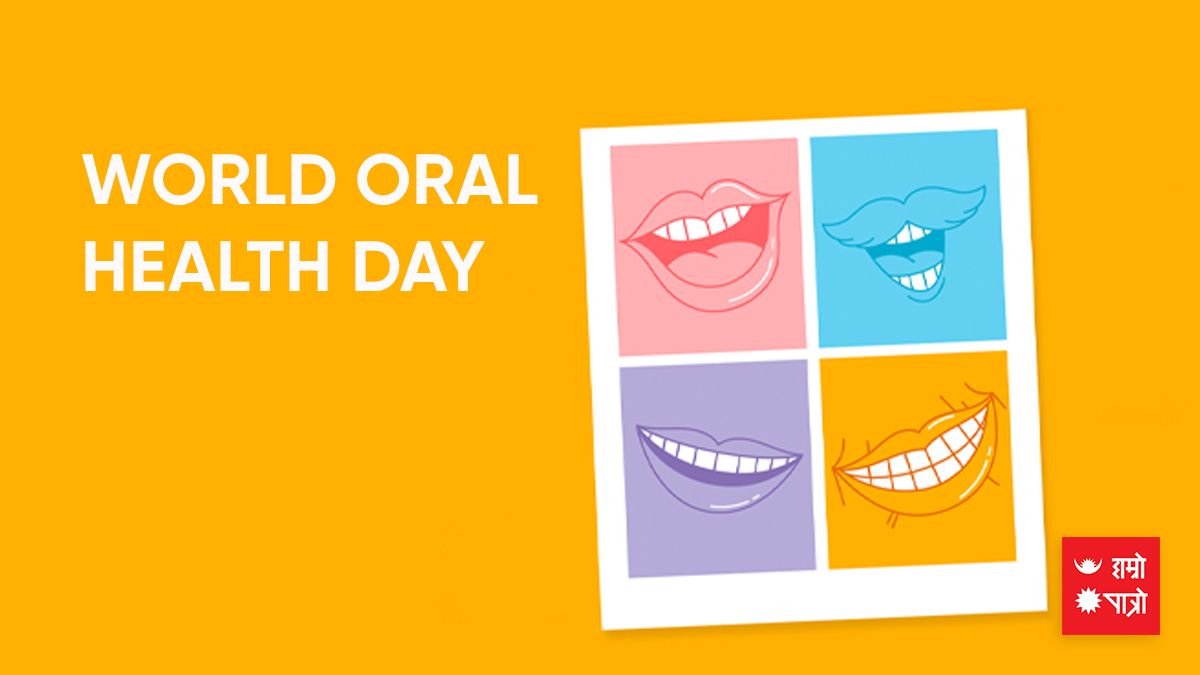
World oral health day
Oral health is regardless of any age. People of all ages should value and care for their oral health. Join the global community on World Oral Health Day to take pride in your mouth for a lifetime of smiles.
Every year on March 20, we celebrate World Oral Health Day as we unite around the world to help reduce the burden of oral diseases. The purpose of this day is to empower people with the knowledge, tools and confidence to protect their oral health.
Slogan for Oral Health Day 2025
The theme for World Oral Health Day 2025 is "A Happy Mouth is a Happy Mind", focusing on the connection between oral health and mental well-being. Today, a video and selfie challenge has been done by hashtagging #MouthProud #WOHD25 to show your mouth and smile around the world.
Background
90% of the world's population suffers from oral diseases in their lifetime. Although most of these oral diseases are preventable, oral health problems still exist due to lack of proper treatment and public awareness. Organized by FDI, the World Dental Federation, National Dental Associations around the world conduct campaigns in more than 130 countries on World Oral Health Day. The year 2013 was started to be celebrated on this day.
March 20th is the United Nations International Day of Happiness. Happy Day is celebrated with the belief that we can create a happier and kinder world together by adopting a simple, daily practice. This day reminds us that being happy is a basic human right and it is important to be happy.
International Day of Happiness
March 20th is the United Nations International Day of Happiness. Happy Day is celebrated with the belief that we can create a happier and kinder world together by adopting a simple, daily practice. This day reminds us that being happy is a basic human right and it is important to be happy.
Background
In 2011, the United Nations General Assembly passed a resolution that made happiness a fundamental human goal and called for happiness to be prioritized as much as economic opportunity. Two years later in 2013, all 193 member states of the United Nations celebrated the world's first International Day of Happiness, and it continues to be held on March 20 of each year.
Nepal in World Happiness Index
In the 10th edition of the World Happiness Report 2022, which was released before the International Day of Happiness in March 2022, Nepal is ranked 84th. For the fifth year in a row, Finland has topped the list as the happiest country in the world.
Theme 2025:
Caring & Sharing is also the theme of the new World Happiness Report being published on 20 March 2025. It explores the latest research on the importance of benevolence, empathy and trust as vital drivers of both individual and national happiness.
The Happiness Ranking is part of the World Happiness Report. A country's score is based on a survey in which participants rate their current quality of life on a scale of zero to 10.
These years, Happiness is more related with "Mental Health" and the worldwide celebrations of this day also advocates for a better mental health.
Learn to be happy and make happy.
SEE 2081-Compulsory English
The SEE (Secondary Education Examination) for the year 2081 is set to begin on Chaitra 7. The Examination Control Office in Sanothimi has announced that all preparations for the upcoming SEE exam, starting today, have been completed. The exams will start at 8 AM and will be conducted simultaneously at exam centers across the country.
According to the schedule, the exam for compulsory English will take place on Chaitra 7. On the same day, students from Veda Vidyashram will take the exam for compulsory Sanskrit language and literature.
The examination board has stated that this schedule applies to both regular and grade improvement candidates.
This year’s SEE reflects diversity and inclusivity in Nepal’s education system. On the first day, different groups of students will take exams in various compulsory subjects: compulsory English for general students, compulsory Sanskrit composition for Veda Vidyashram students, compulsory Arabic language for Madarsa students, and compulsory Nepali for students of other disciplines. This approach aims to address the needs and accessibility of students across the country.
To ensure fairness, monitoring teams have been given the authority to take immediate action against anyone engaging in or encouraging misconduct during the exams.
Best wishes to all the examinees!
-Suyog Dhakal
Liked by: